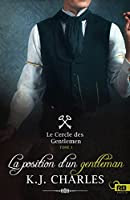I discuss one of my favorite Julia Quinn characters on Votaries.
Here I discuss one of my least favorite.
This is a repost from 2022.
***
The thing that gets me about offended people and their "triggers" is not the way some of the noisier ones effectively (and quite honestly, abusively) hold other people hostage to their emotions and rationales and justifications--
It's how boring they are.
And how boring their stories are.
Does anyone really want the story of a life to be, And I was completely and successfully reactive!?
In sum, I don't care much for the Cinderella character.
I enjoy learning about the tale--the history of it--and I highly recommend this book:
Glass Slipper, Gold Sandal: A Worldwide Cinderella by Paul Fleischman
But ultimately, Cinderella is a young woman who sits around and waits (patiently, kindly, nobly) for destiny.
Cinder Edna is much better!I learned how much I don't warm to the Cinderella myth while reading through the Bridgerton series again. The first, The Duke and I, is the first Julia Quinn I read. It is quite good and in many ways stands out from the rest. The second, The Viscount Who Loved Me, is hilarious (love the mallet of death!).
The third, Benedict's story, An Offer from a Gentleman, is a Cinderella tale, and although I can acknowledge that the Cinderella, Sophie, inhabits a difficult position, I, ultimately, don't care.
The problem is, Sophie is so entirely helpless. She doesn't write to distant relatives, like Jane Eyre. When she meets Benedict, she is more interested in having a nice evening out than, ya know, looking for a position, improving her lot in life, and gaining a benefactor, as Harriet Smith or Lucy Steele would do. Lucy Steele may have been a user but at least she looked after herself. Likewise, my version of Mrs. Clay knows exactly what she is up against and manages to play the game intelligently.
The idea that she is illegitimate and mistreated is used to excuse all this passivity and dumbness. The underlying implication is that trying to better one's life through networking--so one doesn't starve to death in a ditch--is tacky. Books contemporary to the time period addressed the ethics of ladder climbing. Yet even Jane Austen gave us Charlotte.
Historically, Sophie's limited choices and mindset existed. But those choices become far more limited--and this is an important point--if Sophie wants to stay within a certain class. The truth is, young women in Sophie's situation did live fairly miserable lives. But they often did so because they lingered within the class structure that gave them grief.
The others ended up with literary revolutionaries similar to Percy Shelley. And he died. Fanny Imlay, Mary Shelley's illegitimate half-sister, killed herself. In the meantime, Mary Shelley wrote a classic.
So unhappy women of that era and that class made do or broke cultural mores, or--and here is where things get truly unimaginable--they accepted a loss of status.
If Sophie willingly accepts that she'll have to spend the rest of her life as a maid, she could make that reality work for her. She could contact an agency. She could use contacts to track down work. She would rapidly learn that her stepmother has limited power and resources.
But that's a lot of hard work and critical thinking, as Sara demonstrates in The Little Princess, and a change in mental framework.
But David doesn't want to be Sir Richard's secretary. He wants Sir Richard to respect the job he does as a valet.
It is a stunning request for true tolerance, not the fakey tolerance that states that people can only be respected after they have gained exactly the same jobs as powerful people (because the wealthy intelligentsia in America and throughout history has proved itself incapable of respecting anything it doesn't recognize). Instead, David's argument states that maybe the world would be a better place if the non-powerful jobs were actually respected in the first place.
To be fair, David was born into the class that he defends. Sophie wasn't.
She could make the switch.
She doesn't.
It's easy to feel pity for such a character. It's hard to like her.
The above is not a dismissal of Julia Quinn's work, by the way. I think she does as well with the Cinderella trope as one can. But I recommend her other books first, especially, particularly, the delightful Romancing Mr. Bridgerton.



